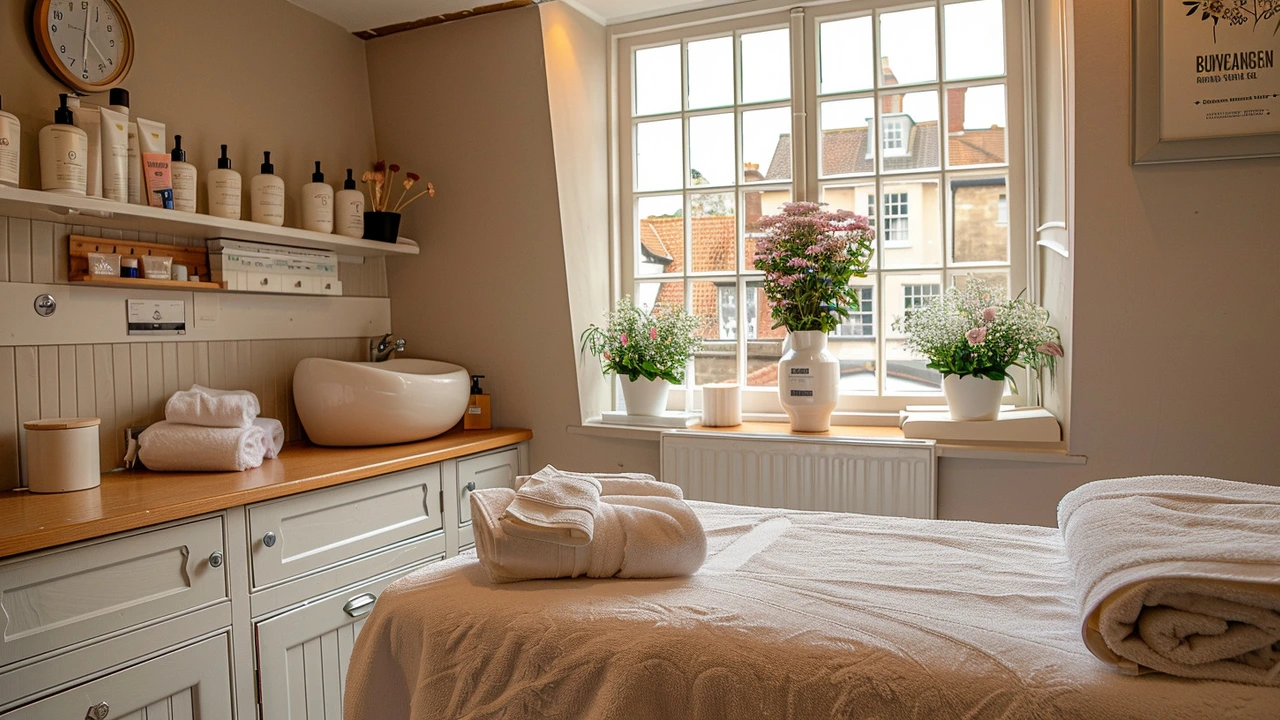Medical Massage Therapy: Essential Guide for Beginners
 Feb, 29 2024
Feb, 29 2024
Understanding Medical Massage
It's surprising how often we underestimate the healing power of touch. Medical massage, in essence, is the specialized therapeutic application of massage techniques aimed at treating specific health conditions. Prescribed by a medical professional and executed by a licensed massage therapist, it significantly differs from your regular spa treatments. This targeted approach helps in managing various conditions, including chronic pain, stress, and muscle tension, by promoting relaxation, improving circulation, and enhancing the body's natural healing processes.
The beauty of medical massage lies in its versatility. From the deep tissue technique aiming at the deeper layers of muscle and connective tissue to trigger point therapy focusing on areas of tight muscle fibers that can form in muscles after injuries or overuse, medical massage encompasses a wide range of methods tailored to individual needs. It's fascinating to realize that something as non-invasive as massage could effectively complement traditional medical treatments.
Considering the benefits, it's integral to distinguish medical massage from conventional relaxation massage. While both aim to alleviate tension and promote well-being, medical massage has a specific goal directed by a healthcare provider. This clear purpose sets it apart and aligns it more closely with physical therapy than a simple spa day. Realizing this distinction helps in setting appropriate expectations and fosters a deeper appreciation for the practice.
Health Benefits of Medical Massage
Turning to medical massage unveils a plethora of potential health benefits. It's quite extraordinary how a meticulously applied force can improve our health in profound ways. Among the most celebrated outcomes are pain relief, reduced stress and anxiety, improved circulation, enhanced flexibility, and, notably, better sleep quality. These benefits don't just contribute to physical health but significantly impact mental well-being, creating a holistic healing experience.
Research further backs the practicality of medical massage. Studies have demonstrated its effectiveness in treating conditions like back pain, headache, and even arthritis. For instance, a study published in the Annals of Internal Medicine found that massage therapy can provide significant pain relief and improve function in patients with chronic low back pain.
"Massage therapy can provide significant pain relief and improve function in patients with chronic low back pain." - Annals of Internal Medicine
It's also worth mentioning that beyond the direct treatments, medical massage fosters an atmosphere of relaxation and care, pivotal in the healing process. The psychological aspect of feeling nurtured and attended to can't be overlooked, as it enhances the overall therapeutic experience. This synergy of physical touch with emotional care caters to a comprehensive recovery, not just from physical ailments but as a rejuvenation of the mind and spirit.
Choosing the Right Medical Massage Therapist
Finding the right massage therapist is crucial to deriving the maximum benefit from medical massage. It's not just about skill but also about compatibility and understanding. A good therapist will not only possess the necessary certifications and experience but also exhibit a genuine concern for your well-being. They should be willing to discuss your health condition, treatment goals, and any concerns you may have. Additionally, ensuring that the therapist is knowledgeable about your specific health issues and experienced in applying the necessary techniques is paramount.
Akin to any medical professional, a good rapport with your massage therapist fosters a balanced relationship where your well-being is the priority. Pay attention to how they communicate, their approach to treatment, and their willingness to adapt as your needs evolve. This consideration not only ensures that the treatment is effective but also provides a comfortable and trustful environment for healing.
It's also beneficial to consult with your healthcare provider when selecting a massage therapist. They can often recommend professionals who specialize in medical massage for your particular health condition or those they have worked with successfully in the past. Integrating medical massage into your overall health care plan – under the guidance of your doctor and massage therapist – optimizes the therapeutic benefits and contributes to your holistic healing journey.
Preparing for Your First Medical Massage Session
Approaching your first medical massage session might evoke a mixture of excitement and uncertainty. Here are a few tips to ease the process and make the most of this therapeutic experience. Firstly, be open and communicative about your health history, current issues, and what you hope to achieve through massage therapy. This transparency allows your therapist to tailor the session to your specific needs.
Additionally, wear comfortable clothing and be prepared to discuss what areas of your body you're comfortable having massaged. The idea is to maintain a balance between thorough treatment and personal comfort. While some discomfort is normal, especially when working out knots or addressing specific pain points, communicate openly with your therapist about any discomfort or preferences during the session.
And finally, give yourself the grace to relax and be present during the treatment. Try not to focus on the day’s stresses or what lies ahead. Instead, allow yourself to be in the moment, absorbing the nurturing experience of the massage. This mindfulness enhances the therapeutic benefits, assisting you in achieving the physical and mental equilibrium that comes from a well-executed medical massage.
